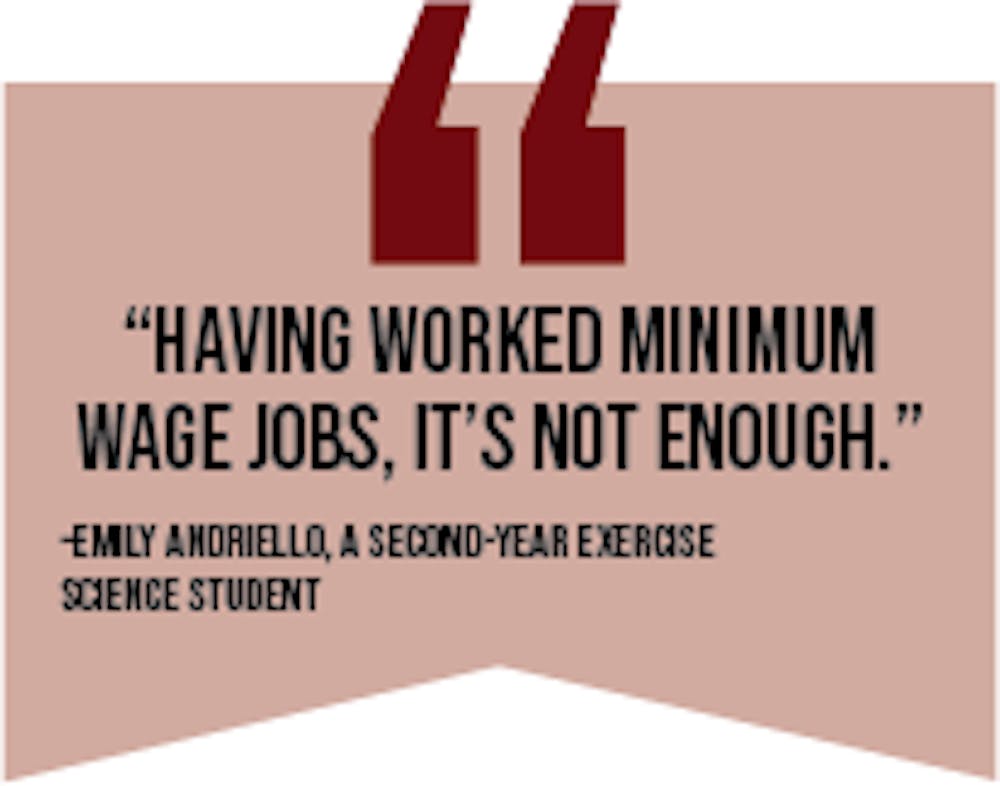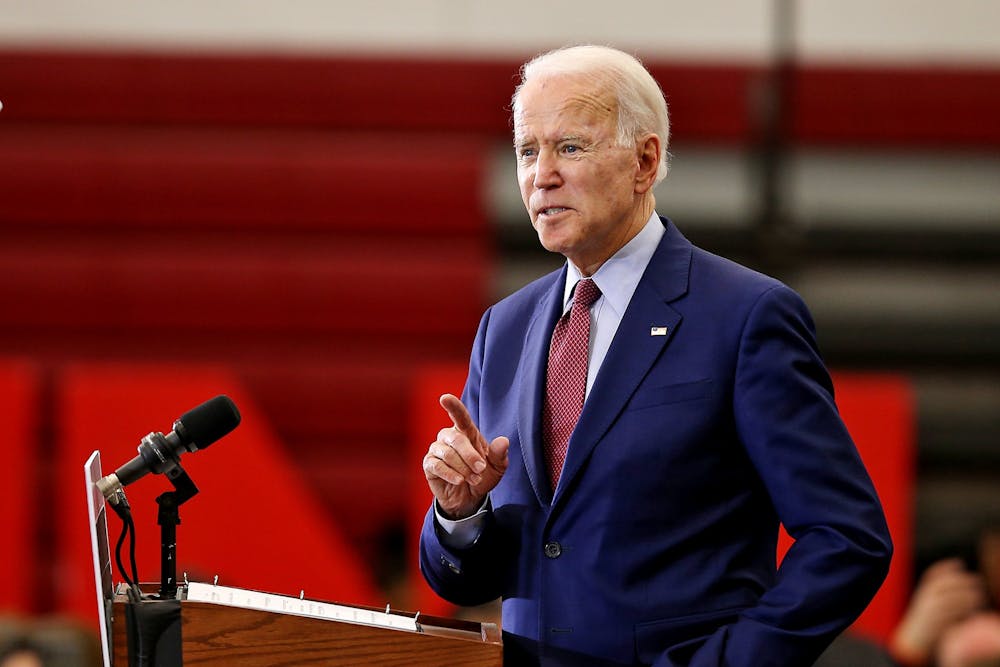Students and Columbia citizens alike generally support President Joe Biden’s push to increase the federal minimum wage, but many said they don’t agree with the new president’s proposal to more than double it to $15 an hour.
“They need to raise it, the sooner, the better,” first-year computer information systems student Walker Stewart said. “It’d give people more purchasing power, it would stimulate everybody’s ability … to go out and spend money at businesses that desperately need money.”
Stewart, along with others, said the minimum wage should at least be adjusted for inflation.
The Daily Gamecock interviewed 40 people asking whether they agreed with raising the federal minimum wage.
A barista working in Columbia said she thought the proposed $15 minimum wouldn't be enough in the face of high costs such as healthcare. The barista asked to not be identified by their name.
Others, many of whom didn’t have strong beliefs about a particular price point, thought the minimum wage should be livable at the least.

“Having worked minimum wage jobs, it’s not enough,” Emily Andriello, a second-year exercise science student from just outside of New York City, said.
Third-year nursing student Cassie Door said her mother raised her and her siblings alone while working a low-paying job.
“Single moms have to support their family," Dorr said. "And if they can only get a job that is minimum wage, they still need money to raise their kids and everything."
Keith Hearn, a microgreens farmer, said if he had any farmhands, he'd pay them a living wage.
“There’s a lot of issues with people being able to afford things that they need," Hearn said. "Price of living is going sky high, housing is going through the roof. We all need to do our part and pay people a minimum wage that is a livable wage.”
Some raised concerns about increasing the minimum wage, such as fear it would cause inflation or hurt small businesses already reeling from the economic impacts of COVID-19.
“If you’re just starting a small business, you might have a lot of bills initially but to pay twice, double that amount for hourly employees, that’s a lot for a small business,” said Catherine Kramer, the owner of Square One Salon in Columbia who does support raising the minimum wage.
Grace Naumowhich, a second-year political science major, said she supports raising the minimum wage, in part because she saw the benefits of a one-dollar increase in her home state of Illinois.
“Seeing the quality of life that impacts just even a dollar difference I feel like is something that greatly outweighs some of the costs that we’re gonna incur in that process,” Naumowhich said.
While some argued the minimum wage has not kept up with inflation, others worried that raising the minimum wage too quickly would cause inflation to skyrocket.
“Gas is gonna go from $2 to $4, milk's gonna go from whatever it is now to $6 a gallon,” Chris Copeland, a beekeeper at Bennie’s Bees, said.
A 2019 report from the Congressional Budget Office found that while an increase to $15 an hour by 2025 would boost wages for 17 million workers, it had the potential to put 1.3 million workers out of a job.
“Generally the large majority of low-wage workers would be helped. You also worry that there might be some who would be unemployed as a result,” McKinley Blackburn, a professor of economics at the University of South Carolina, said.
Blackburn said low-wage workers could be helped by rolling out an increase in the minimum wage over several years and instituting an earned income tax credit for poorer workers, which would give them some relief from income taxes.

